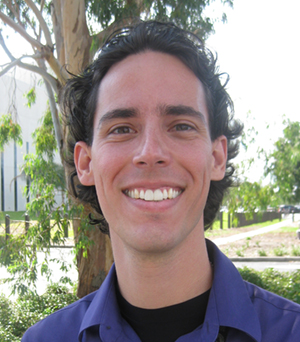 I first encountered religious coercion while playing America’s great pastime. As a youngster, I lived to play baseball. On game day I would often put on my uniform hours before the first pitch. I still reminisce about hitting a home run or winning a big game in extra innings. I also will never forget the pregame rituals led by my public high school coach, who was also a teacher.
I first encountered religious coercion while playing America’s great pastime. As a youngster, I lived to play baseball. On game day I would often put on my uniform hours before the first pitch. I still reminisce about hitting a home run or winning a big game in extra innings. I also will never forget the pregame rituals led by my public high school coach, who was also a teacher.
“Let’s go take a knee,” he’d say, and we would head to the bullpen and plant ourselves on one knee while Coach led us in the Lord’s Prayer. All except I would recite it in unison. Brought up in a secular household, I had never heard the Lord’s Prayer. While my teammates bowed their heads, I remained silent and marginalized as Coach trespassed on our young, vulnerable minds.
We have never been “one nation under God.” The dissenters who founded our country spat in the face of tyranny, declared our nation’s independence and established a secular government ruled by the people, not by divinely appointed kings or queens. Our Constitution and the Bill of Rights trumpeted the protection of our individual rights and civil liberties, not reverence to a god or allegiance to a religion. Fast-forward to the 1950s, and we see a growing movement beginning to defy the virtues of secularism. The burgeoning forces of the Religious Right, fueled by the specter of godless communism, swiftly infiltrated our nation’s politics and government.
In 1956, “E pluribus unum” was replaced by “In God We Trust,” a pretentious claim that excludes nonbelievers and violates the Establishment Clause. Contrary to the motto’s assertion, current trends suggest our nation is losing its trust in god. The motto reflects neither the diversity that we celebrate nor the equality that we demand. It is a superficial slogan conceived by fear, ignorance and religious solipsism.
In a 2009 study published in Evolutionary Psychology, researcher Gregory Paul found that First World societies with the highest levels of religiosity also demonstrate higher levels of societal dysfunction in terms of homicides, incarcerations, infant mortality, sexually transmitted diseases, teenage births, abortions and income inequality. Our national motto is not only false but impedes progress.
The Texas State Board of Education recently voted to adopt a social studies and history curriculum requiring students to learn about the Judeo-Christian influences of the nation’s founding fathers and that the words “separation of church and state” are not in the Constitution. Should we also require them to understand that no deity is mentioned in the Constitution? Why not? Thomas Jefferson was downgraded as an influential political philosopher due to his unabashed criticism of Christianity and fierce advocacy of church-state separation.
States are passing laws with “conscience clauses” that let pharmacists and health care providers refuse service or treatment that goes against their religious beliefs. Merging god and government not only denies us equal rights, it threatens our safety.
Military leaders have crossed state-church boundaries by using provocative religious language. Lt. Gen. Jerry Boykin told a group of Baptists in Florida about a victory over a Muslim warlord in Somalia. Boykin declared, “I knew my God was bigger than his,” and affirmed, “As a Christian, I believe that there is a spiritual war that is continuous as articulated in the bible. It is not confined to the war of terrorism.”
Such statements by our leaders further endanger the lives of our military personnel and all citizens. They inflame hateful sentiments and escalate wars into religious crusades. Is there a more compelling justification than this for keeping god out of government?
We must diligently work to dispel the “one nation under God” myth. We must commit to the uphill battle of separating religion and government. Like many of the laws and values that we cherish, the principle of the separation of church and state is a perennial and ingenious safeguard to ensure equality.
By extracting god from the government and confining matters of religious belief to the dictates of the conscience and private assemblies, we move toward the ideal of true liberty.
Jason Rodriguez, 32, Tampa, Fla., is enrolled in the State University of New York-Buffalo’s online “Science and the Public” master’s program. He earned a B.A. in English education from the University of Central Florida in 2001. He works as a technical writer for a private firm that supports the U.S. Special Operations Command at MacDill Air Force Base.
This an excerpt of his honorable mention essay. He received a $250 scholarship from FFRF.